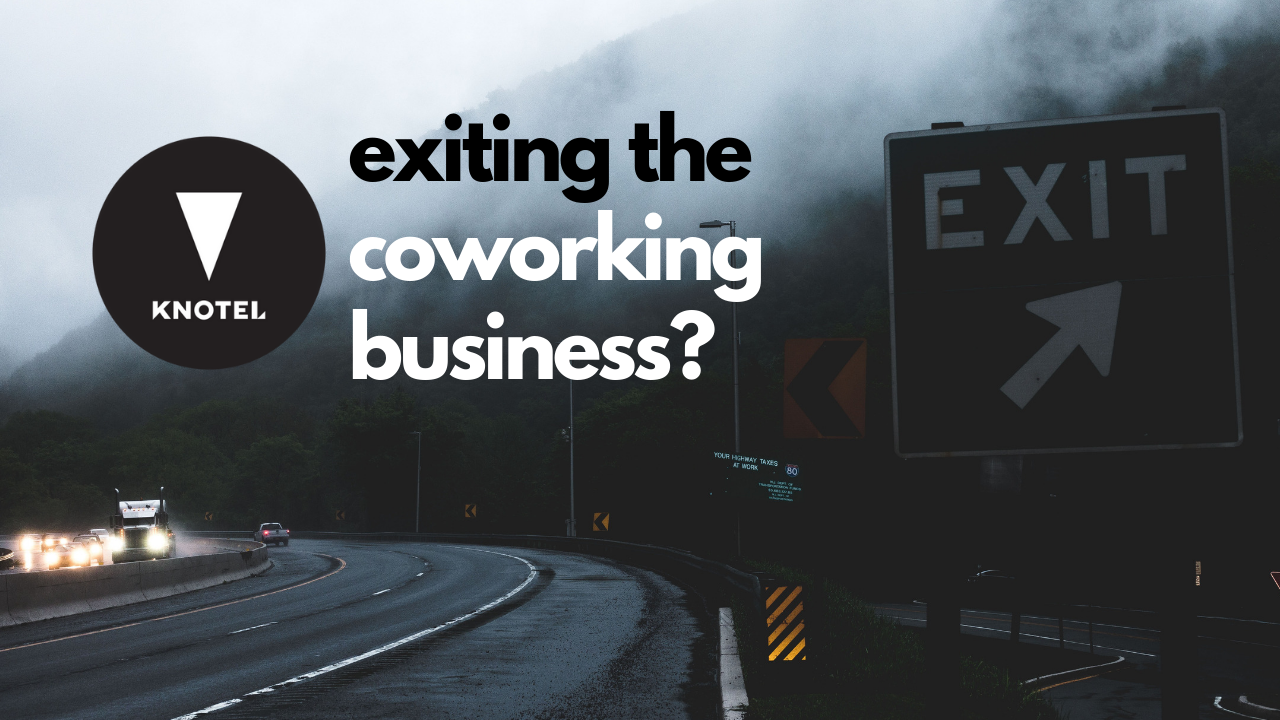- Knotel seems to be exiting the coworking business and focusing solely on enterprise clients.
- In its short three years, Knotel has grown faster than any other operator, including WeWork.
- Corporate clients represent huge opportunities, but this specific market segment is becoming increasingly competitive.
Corporate adoption of coworking continues to grow. A recent report found that the proportion of corporate occupiers using flexible workspace is expected to double by 2021. This segment’s growth and increased interest in coworking has prompted a new type of operator and it’s led to CRE crossing into the world of coworking.
Suggested reading: The Top 5 most Valuable Companies that are Using Coworking
More importantly, however, corporate adoption of coworking has driven various operators to rethink their business model and their spaces. Flexible workspace operators have started allocating more square footage to private offices and less of it to shared working areas.
There are various reasons why corporates are looking to coworking and flexible space. They are leveraging their offices as an attraction and retention tool, as a way to power innovation and collaboration, and as a way to enter new markets. Also, new accounting standards coming into effect in January 2019 have driven more companies to search for flexible office space.
For flexible workspace operators, attracting corporates makes sense. Corporations need more space and they are more willing to sign longer memberships. It provides operators with a much more stable monthly and yearly revenue.
Flexible workspace provider Knotel seems to understand this quite well. In an interview with Allwork.Space in 2017, Amol Sarva, co-founder of Knotel, stated that “there are only so many freelancers with headphones on that need a desk in a coworking space.” Which is why, since it was founded back in 2015, Knotel has focused on catering to mid-size and large businesses.
Still, it did offer a coworking option for startups, entrepreneurs, and freelancers.
However, those days might be gone for Knotel as it seems the flexible workspace operator is getting out of the coworking business and focusing only on placing enterprise clients. Knotel’s coworking floors in New York were discontinued earlier this year.
Allwork.Space tried to reach out on several occasions to a Knotel representative to confirm the information, but received no response.
The news came shortly before Knotel’s three year anniversary. The flexible workspace brand celebrated in New York with existing members and shared the news that it had signed a new deal in Brazil, it had bought a new business in France, and its 100th building would open in San Francisco in 2019.
The industry’s exponential growth over the past few years have led many operators to ‘nichification’ in order to differentiate themselves from the competition. Knotel has found its niche: enterprise clients. In its short three years, Knotel has grown faster than any other operator, including WeWork. The corporate focus seems to work; though they aren’t alone targeting this specific market segment.
WeWork launched HQ by WeWork earlier this year to target more enterprise clients, Industrious also confirmed earlier this year that it wanted to grow its corporate roster, and last year (2017) Bond Collective started to design their locations with corporates in mind. Other brands that have focused on catering to corporate clients include Regus and The Instant Group.
JLL estimates that by 2030, 30% of corporate portfolios will comprise flexible workspace. Various flexible workspace brands, including those created and run by property owners, will aggressively focus on this niche.















